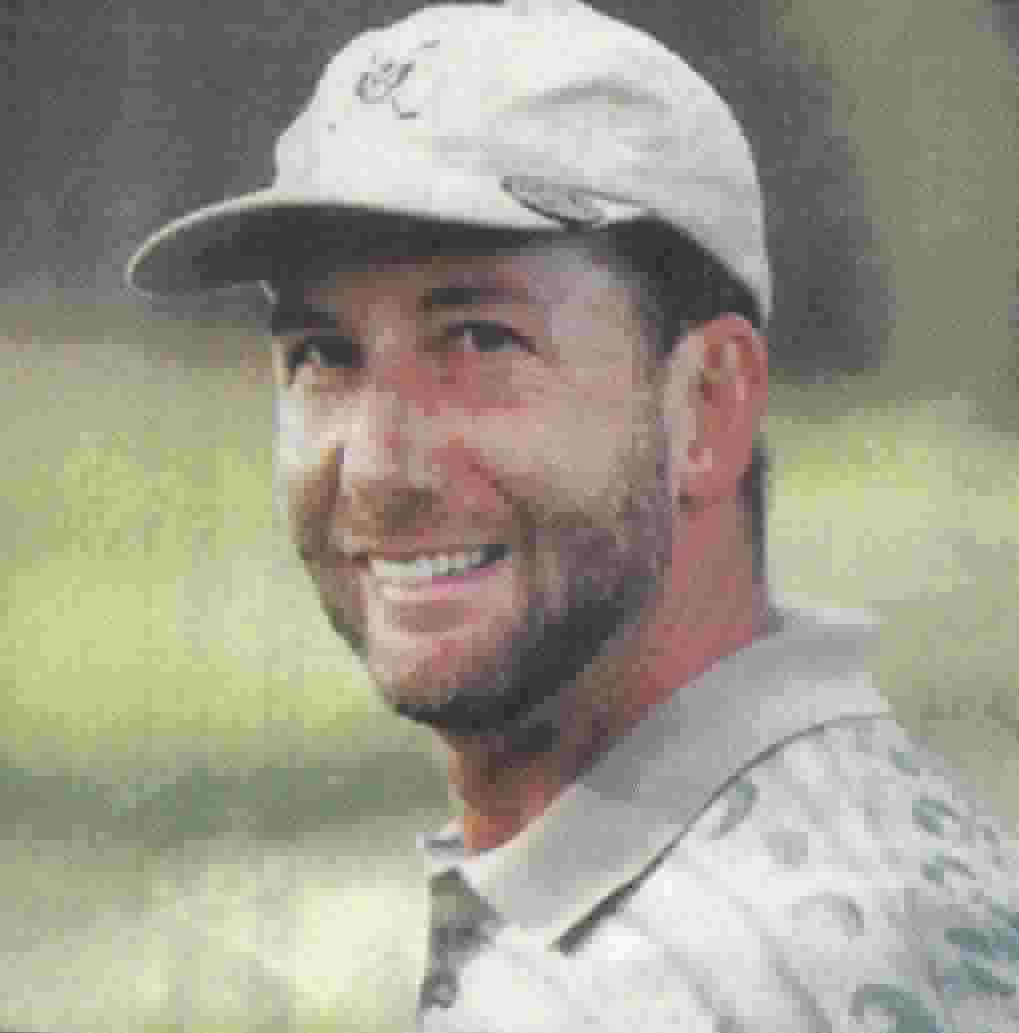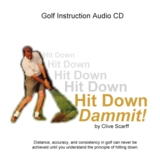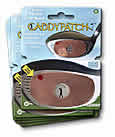Off Season Golf Part 3: Setting Your Golf
Goals
Read
other Parts from the
Technology & Distance
series and Short Game
series here, Archives.
Email
me if you'd if there's anything you'd like to see discussed
or analyzed in
the next or future
newsletters. Now
on to this week's
topic.
III.
Keep your goals
realistic, achievable
and sensible!
Firstly,
I don't advocate
setting goals of
any type only once
per year. Goals should
be set when one is
trying to achieve
change, at any time.
Unfortunately, some
people often only
consider setting
goals at the beginning
of a year; a feeling
of a fresh start
is in the air.
I
will focus on setting
your golf goals.
One must differentiate
between a goal and
an objective. A goal
is some end result
you're trying to
achieve. An objective
is something that
you will do to help
you achieve the goal.
Ensure
that any goals you
set are realistic,
achievable and sensible.
For instance, if you're
currently a 22 handicap,
setting a goal of
becoming a 5 handicap
by the end of the
season may not be
realistic. If you
achieve a goal part
way through the season,
you can always reset
a new one at that
point.
For
example, let's say
you are a 19 handicap
and you set a goal
of becoming a
9
handicap by the end
of the season (a
very lofty goal,
but possible). Recall
from earlier newsletters my Statistical Analysis
of an Average Golfer.
For all levels of
players, the most
signficant way to
lower scores is by
improving the short
game. Recall that:
Compared
to overall average
golfer statistics,
you need to improve
by:
† increasing
GIR from 3 to 8 (267%
increase)
† increasing
Iron Accuracy
from 20 to 53%
(265% increase)
† reducing
Putts per Round
from 35.0 to
31.7 (9.5% decrease)
† reducing
Pitch/Chip/Sand
from 15.6 to
9.8 (37% decrease)
Your
ball striking and
thus swing would
need to improve immensely
to reach your goal.
Imagine how much
less improvement
is necessary with
the short game to
realize lower scores.
I recommend you buying Dave
Pelz's book
to help out.
As
some objectives to
achieve this goal,
I would highly recommend
the 19 handicap putting
some things in place
to improve the short
game such as:
† arranging
some lessons from
a local professional
† setting
aside an hour each
second day to work
on the short game
† purchasing
some books on the
short game to help
out with practice
† utilizing
more of my golf site
and tips to improve
† it
might be that the
short game is the
only focus of improvement
For
improvement to take
place, of course,
one needs to set
aside ample time
to practice and play.
The 19 handicap won't
improve much if all
he/she does is play
a round of golf 3
times each week.
When top professionals
make significant
changes to their
games, they often
play less and practice
more. It's difficult
to work on improvement
of various aspects
of the game on the
course because the
sole goal there is
score.
I'd
highly recommend
you invest some money
this golf season
to improving your
game without buying
new equipment. Focus
on improving yourself,
the golfer. Such
improvement will
make the biggest
difference to your
game. Instead of
investing $400 on
a new driver to hit
it farther (won't
make a huge difference
unless your current
driver is over 10
years old), invest
the money in some
lessons, improving
your strength & fitness
level, buying some great
golf books,
etc.
If
you'd like some advice
on setting your goals
and objectives for
the golfing season,
drop me an email describing your current
level of play and
what you propose.
I'd be happy to off
some advice.
Physical
fitness is an important
aspect
to one playing golf
well.
If
you are looking to
improve your game
and feel you need
to improve your flexibility
and strength specific
to golf, I strongly
recommend Mike Pedersen's
Golf Trainer 'Power
Performance Progam'.
Mike has helped thousands
of golfers all over
the world improve
their games with
his online golf fitness
program. It is like
having your own Golf
Fitness Trainer,
but at a fraction
of the price. Click
here to go there
now. I highly recommend
it.
Mike
has also just recently
made available an
e-book, called Ultimate
Golf Fitness Ebook,
dedicated to guiding
you on your own golf
fitness program.
So, if you are more
of a do-it-your-selfer,
take a look at his
book. It explains
what to work on and
how to monitor your
progress.
A list of resources that have been used to produce this newsletter
can be found on my
website here.
The focus
of my site
is to utilize science
and math to lower
your score. New technology
is one
way to achieve this,
but to be honest,
the technology is
one small piece of
the puzzle.
To actually improve significantly,
we all need to:
1. Improve our swings using CD
Interactive, Hit
Down Dammit!
2. Learn how to swing simpler
like the Iron Byron
with the great coffee
table book, Swing
Machine Golf!
3. Improve our physical fitness
and strength.
The
Golf Trainer Power
Performance Programô and Ultimate
Golf Fitness Ebook
4. Improve our mental games.
Golf
Mind Software
5. Improve our Probable
Golf games.
Learn how to make better
choices on the course
through knowing how
shot patterns and reading
the elements and course
better.
Click on the links above to
take a look at
ways that I personally
use myself and
recommend you try
as well.
Hope
I provided some useful
ways for to become
better prepared for
you best golf season
ever.
Ken Tannar
If you'd like to opt out of this newsletter, send
me an email with the subject "opt
out, please"
|










